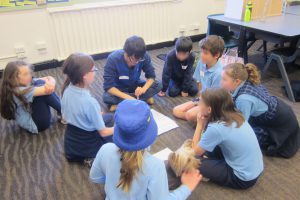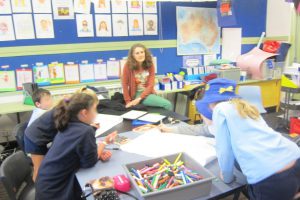The IAP2A Participatory Budgeting Journey. How did “Pitch for the Practice” advance engagement?

In 2018, IAP2 Australasia invited members on our first participatory budgeting journey.
Learnings from the South Australia government “Fund my Community” along with input from an IAP2 Australasia working group informed the design framework. This framework specified criteria and guidelines for IAP2’s participatory budgeting journey – called “Pitch for the Practice” – to ensure a fair and balanced voting outcome; while addressing equity concerns.
A total fund of $100,000 was provided by IAP2 Australasia, with a ceiling of $25,000 available for winning successful projects.
IAP2 Australasia members were invited to submit a proposal to project manage “Pitch for the Practice” and MosaicLab was selected.
The dedicated online application and voting platform was developed by Harvest Digital Planning and Hive. This platform was designed to be easy to use, access and with randomised display of eligible projects.
Ten eligible submissions were put to the vote, and five winning projects were selected by members. Each project strived to advocate for engagement and strengthen the engagement practice.
Some projects were short term in nature, while others are still ongoing.
What did we learn?
So, eighteen months on – what have we learnt and how has IAP2 Australasia and the engagement practice benefited?
Overall, each project provided members with new opportunities to connect, contribute and network.
Whether it was participating in a survey, joining a Community of Practice or mentoring program, or piloting practice in schools; members were invited at every stage to share their knowledge – or benefit from others learnings.
While the aim of each project was to either advocate for engagement, strengthen engagement networks or advance professional development, IAP2 Australasia also set out overall objectives to engage members, position IAP2 as the “go-to organisation” for engagement, and encourage innovation in practice.
Although difficult to quantify, we learned that a participatory budgeting project definitely contributes to achieving these aims.
Would we do it again? We would love to!
Something we would do differently next time is to incorporate a longer time frame and more resources for project management and promotion. This would help IAP2 to further leverage member participation to maximise submissions, engagement and potential opportunities to share knowledge.
How did each winning project contribute to strengthening engagement networks, advancing professional development or advocating for engagement?
Here we present a summary of the outcome of each project:
IAP2 Knowledge Exchange Program, Mendleson Consulting
Launched in November 2018, a mentoring program for IAP2 Australasia members invited senior practitioners to provide short or long-term mentoring to upskill newer practitioners.
Twenty-five mentees were paired with volunteer members, and mentees surveyed responded that they received great value out of the relationships.
The establishment of this informal mentoring program has provided IAP2A with a framework from which to develop a larger mentoring program in coming years, with the aim to strengthen networks and advance professional development.
Deliberation in Schools, Double Arrow Consulting
This program aimed to pilot and evaluate deliberative teaching sessions and develop a professional development resource for teachers and practitioners working to build capacity of all school children to listen, reason, communicate and collaborate, and thus to engage as citizens, now and in the future.
The project demonstrated that deliberation in Schools program can build communication, collaboration and student agency in the classroom, and can contribute to embracing and harnessing diversity in schools.
The students demonstrated an appetite for democratic engagement at a school level, with a sense of the responsibility. They also learnt about the value of disagreement, and of building capacity to explore disagreement in constructive ways, in order to learn and collaborate across difference.
It is hoped that this approach can be used by teachers and practitioners/facilitators who work with young people. Professional development (PD) resources have been developed to provide guidance and resources based on our learning and can be accessed here.
Read on for an update from Wendy Russell#*, Kei Nishiyama#, Pierrick Chalaye#
# Centre for Deliberative Democracy and Global Governance, University of Canberra
* Double Arrow Consulting, Canberra
This project was conducted by a team of researcher/practitioners in 2018-19, with the aim to build the capacity of school children to listen, reason, think, communicate and collaborate, so they have the resources and motivation to engage productively as citizens in our democracy, both now and in the future.
 The project involved programs in two public schools in the ACT (Ainslie Primary and Hawker College). We designed and ran 5 teaching sessions (approx. 2 hours each) over one term for a year 5 group, and a year 11 group. The sessions were co-designed with teachers to fit with the curriculum and the learning needs of the class (the year 5 class explored ideas on ‘How to make the school better’, and the year 11 group explored ‘Is Australia a peaceful nation?’ as part of a Global Studies unit on War and Conflict).
The project involved programs in two public schools in the ACT (Ainslie Primary and Hawker College). We designed and ran 5 teaching sessions (approx. 2 hours each) over one term for a year 5 group, and a year 11 group. The sessions were co-designed with teachers to fit with the curriculum and the learning needs of the class (the year 5 class explored ideas on ‘How to make the school better’, and the year 11 group explored ‘Is Australia a peaceful nation?’ as part of a Global Studies unit on War and Conflict).
We learnt of the potential of Deliberation in Schools to build student capacity and engagement in the classroom, and to help us learn more about deliberation and citizen participation. We found that there were challenges but also rewards from deliberation in relation to social inclusion: methods and approaches need to be adapted to allow for diversity of background, behavior and expression; and deliberation can potentially help us to understand marginalized students and give them greater voice and confidence.
We have presented the results of our pilot to our local community of practice – Deliberate ACT, at the University of Canberra, and at the National Institute for Technology Tokyo College (Japan). We are currently preparing a journal article on the role of facilitation in classroom deliberation, drawing on our experiences from the pilot. We are also considering options for further research funding to explore some of the research questions that have emerged. For instance, we would like to investigate how deliberative approaches can enrich Civics education.
We hope that our approach can be used by teachers and practitioners/facilitators who work with young people. A professional development (PD) resource has been developed from this pilot for that purpose. We are also interested to communicate with other practitioners working with young people and share what we have learnt.
Digital Community Engagement in Australia, ArneTeam
This winning project sought to uncover best practice approaches in digital community engagement.
In 2019, the research report was finalised and ArneTeam and IAP2A held a series of events and a webinar to present the findings.
A key insight of the research found that while cost-effective traditional online tools such as online surveys and online submissions have dominated digital engagement practice, change is transpiring. Shifts in technology have started to have a significant impact on tool selection – think augmented reality, mobile apps and gamification.
The research report also covered key themes such as evaluation, organisational culture, integrating offline and digital methods and engaging hard to reach groups.
If you missed the report last year, you can read it here
The Connection Project, Mendleson Consulting
This project resulted in the establishment of three Communities of Practice for engagement practitioners working in the following sectors: Infrastructure, Emergency Services and Environment and Sustainability.
Each group has now met several times, voted on themes for meetings and had some excellent conversations. Each meeting features a member presenting a project that they have worked on and what they learned. Members can put questions and issues to their peers in a safe, supportive space and a number of people have shared challenges and received useful advice.
IAP2 will continue to use this successful model to develop further communities of practice.
Evaluating the Engagement Sector, Articulous
With engagement coming under increased scrutiny by CEOs, managers and communities to demonstrate its value, Articulous proposed the largest ever survey of Australasian community and stakeholder engagement practitioners to evaluate and measure the state of the practice.
Preliminary findings showed that 90% of practitioners believe face-to-face methods provide high quality engagement, compared with 75% of practitioners who believe online engagement provides high quality engagement.
Review this article to learn more or you can download the State of the Practice Report here.
Past articles
To recap the project at various stages, you may like to read these articles:
- Pitch for the Practice – an update from our winners
- ArneTech’s research into digital community engagement in Australia: phase one complete!
- Get involved in the winning “Pitch for the Practice” projects
- Pitch For The Practice winners announced!
Acknowledgements
Thank you to the excellent team at Harvest Digital Planning for their sponsorship of the program and also for the use of The Hive, a complete community engagement solution that supports you in the online participation process, broadens your reach and informs better decision making. We are very grateful to MosaicLab for their guidance and project management. Each achieved an amazing result given the tight time frames for this project.
And also much appreciation for Kylie Cochrane, Mandi Davidson, Kate Henderson, Helen Christensen and Marion Short who formed the Participatory Budget working group.
